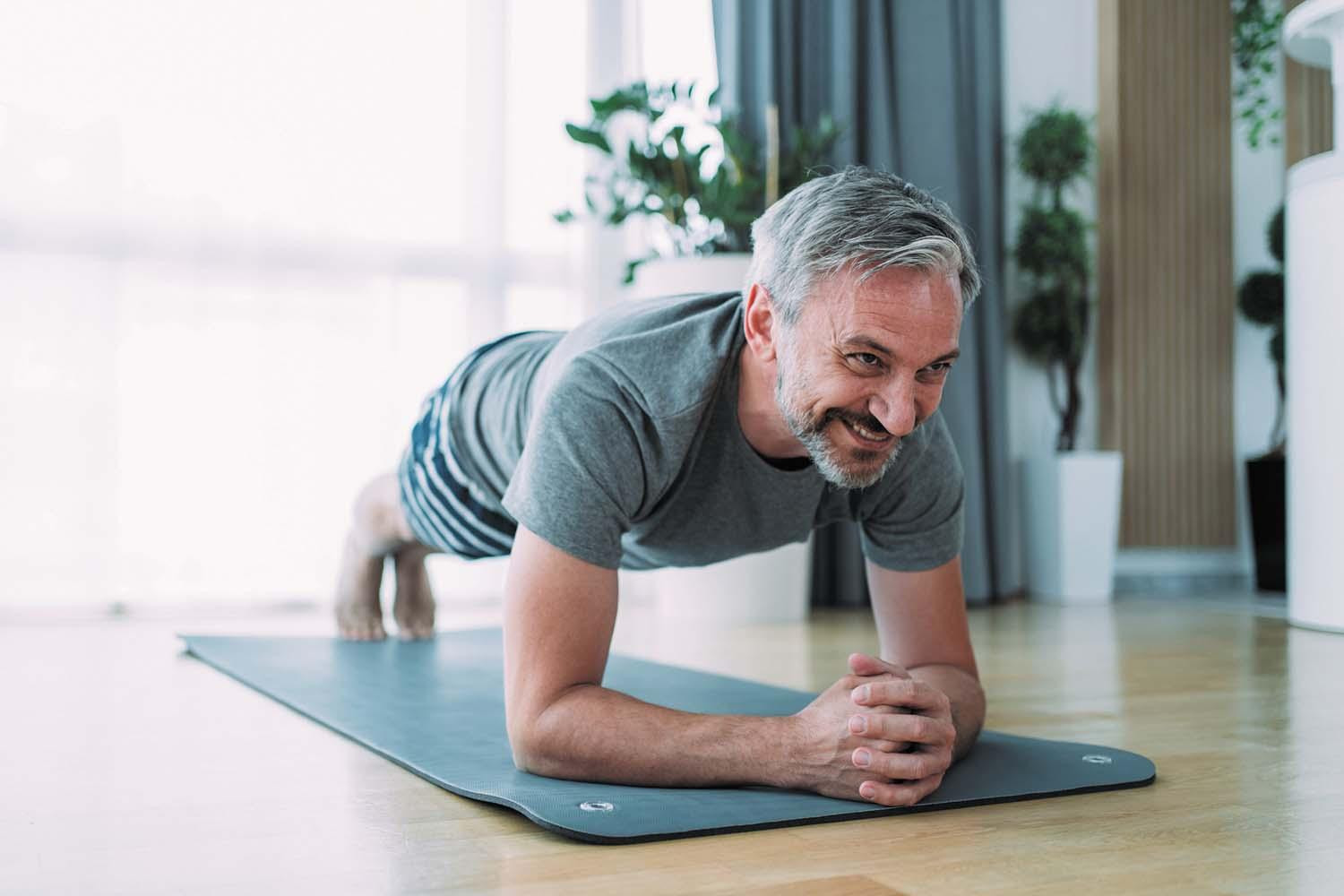
Can white noise really help you sleep better?

Celiac disease: Exploring four myths

What is prostatitis and how is it treated?

What is Cushing syndrome?

Exercises to relieve joint pain

Think your child has ADHD? What your pediatrician can do

Foam roller: Could you benefit from this massage tool?

Stepping up activity if winter slowed you down

Common causes of cloudy urine

Dragon fruit: How to enjoy this antioxidant-rich fruit
Safety/Injuries Archive
Articles
Are you headed for a fall?
People often don't realize they are at high risk for falling until after they've taken a tumble. Studies have shown that maintaining optimal core and postural strength, good balance, and flexibility in the calves and hips are the best ways to prevent falls. At-home tests can help highlight weaknesses in these three areas that can then be addressed with a personal trainer or physical therapist.
FDA adds warning to prescription hot flash medication
The FDA added a boxed warning in December 2024 to fezolinetant (Veozah), a nonhormonal drug that reduces hot flashes and night sweats in menopausal women. The drug may cause rare but serious liver injury.
Practical pointers for pickleballers
Playing pickleball can boost cardiovascular health, but this popular sport can leave older players prone to injuries. Preventive strategies including taking a class to learn proper form; choosing supportive gear such as well-fitting shoes and sleeve braces; warming up before playing with squats, lunges, and heel raises; and doing lower-body strength-building exercises a couple of times per week.
Are you taking too many medications?
Many people need to take multiple medications for health and symptom control, but it requires extra attention to prevent risks for drug interactions, dosage errors, and other problems. Several strategies can help, such as learning the names of pills, what they do, and why they're necessary; writing down the day, time, and dose of each drug; using organization tools such as pillboxes and alarms; and scheduling a medication review with a doctor or pharmacist every 12 months, so that unnecessary pills—such as those no longer needed—can be omitted.
Alcohol and your health: Risks, benefits, and controversies
For millions of people, alcohol is a regular part of their lives. But there are many downsides to drinking — some familiar, others less well appreciated. And concerns about the risks of even moderate drinking are on the rise.
9 ways to stay out of the emergency room this winter
Certain strategies can help people avoid trips to the emergency room during the winter. For example, to avoid slipping and breaking a bone, spread salt on sidewalks and driveways; to avoid hypothermia, wear a coat and layers of athletic clothing that wicks away moisture; to avoid a heart attack from overexertion, use caution when starting a new exercise routine or shoveling snow. It's also important to build an emergency kit that includes several days' worth of food and drinking water, and two weeks of medication.
What you should know about recalls of cardiac devices
Implanted heart devices include pacemakers and implantable cardioverter defibrillators (ICDs), which monitor and correct abnormal heart rhythms. While very reliable, they are not perfect, and recalls of these devices affect thousands of people each year, according to a 2024 study. Testing the effectiveness and safety of cardiac devices is far more complicated than testing drugs. But efforts are under way to improve postmarket tracking of device complications by using electronic health records, Medicare databases, and registries developed in partnership with device manufacturers.
Court ruling curbs unfounded claims for memory supplement
In the US, supplements are not tested in the way prescription medicines are, and their manufacturers can make claims about their abilities that may or may not be true. But there are some rules supplement makers must follow, and the FDA's plan to revamp its regulation of dietary supplements is a step toward improving consumer protection.
Is snow shoveling safe for people with heart disease?
Snow shoveling can be risky for people with heart disease because (1) the activity requires a lot of physical effort, and (2) cold temperatures constrict arteries. Both factors can raise the risk of a heart attack in people with narrowed heart arteries.

Can white noise really help you sleep better?

Celiac disease: Exploring four myths

What is prostatitis and how is it treated?

What is Cushing syndrome?

Exercises to relieve joint pain

Think your child has ADHD? What your pediatrician can do

Foam roller: Could you benefit from this massage tool?

Stepping up activity if winter slowed you down

Common causes of cloudy urine

Dragon fruit: How to enjoy this antioxidant-rich fruit
Free Healthbeat Signup
Get the latest in health news delivered to your inbox!
Sign Up











